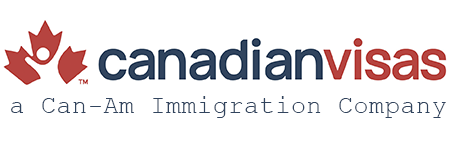
Jul 19, 2017 | Blog, Immigrate to Canada, Immigration, In the News, Permanent Residency, Skilled Workers, Spousal Sponsorship, Student Visas, Work Permits, Working In Canada
There are many reasons why a person would choose to immigrate to Canada. Some people immigrate in hopes of living a better life and/or to give their children opportunities that may not be so readily available in their country. Some people immigrate because they live in a war-torn country and they fear for their safety and that of their family. Others have family already in Canada and they want to be close to them. Some people choose to immigrate to Canada with their spouse or partner. This process is called Spousal Sponsorship. Then there are those who come to Canada to gain valuable education and/or work experience.
When it comes to quality of life, Canada has most other countries beat. In fact, Canada was ranked #2 best country in the world and #1 in education. Just to compare, the US was ranked 7th best country and 7th in education. Canadians are also “the 6th happiest people in the world, while Americans lag behind at 13th.” And there is a reason why Canadians are so happy. They have universal healthcare, for one. And, relative to other countries, Canada has easier access to education / cheaper degrees, higher press freedom, higher economic freedom, and better prison and justice systems. Canadians also live longer, work less hours, take more days off, and earn more money than Americans. Wow. It’s true. The American dream has moved north.
Let’s talk about immigration policy. The main issue to consider here is that Canadian provinces, unlike US states, have the ability to set immigration policy. Immigration in Canada is a joint effort between the federal and provincial governments. Canada has a program called the Provincial Nominee Program (PNP), which allows provinces to choose who they bring in based on economic need. The PNP helps individuals and their families to apply for permanent residence based on set criteria developed by the individual provinces. This is good both for the immigrant, whose application for PR is fast-tracked by a provincial nomination, and for the province, as they are able to bring in workers to meet labor market demand. While many of Canada’s immigration programs focus on skilled worker immigration, the PNP allows provinces to select workers in any occupation, including low or no-skilled occupations, to meet the labor demands of the province. So, if you find yourself to not be eligible for any other economic immigration program, you may find success in one of the Provincial Nominee Programs.
Overall, Canada’s immigration policy is far superior to that of the United States. Canada welcomes immigrants based on merit, which means that individuals who receive permanent residence in Canada are typically well educated and highly skilled. Immigration to Canada is also easier and faster than US immigration for many people. So, if you are a young professional looking for better opportunities in a beautiful country, Canada might just be the best place to go. Or if you are a businessman or woman looking to expand your business or set up a new business, Canada is a great place to do this. Whatever your reasons are, our team of qualified immigration consultants can assist you with all of your immigration needs. To start, take our free online assessment and find out if you qualify for one of Canada’s many immigration programs. If you have any immigration questions, contact us for a consultation today.

Jun 23, 2017 | Blog, Canadian Employers, In the News, Processing Times, Student Visas, Temporary Foreign Workers, Tourist Visas, Work Permits, Working In Canada
Immigration, Refugees, and Citizenship Canada (IRCC) has announced the launch of the new Global Talent Stream, a part of the Canadian government’s new Global Skills Strategy. As a result, certain high-skilled workers may now be able to obtain their temporary work permits in 2 weeks. This includes an open work permit for a spouse and a study permit for dependent children of the primary applicant.
The Global Talent Stream is comprised of two categories:
- Category A is available for employers who have been referred by an Employment and Social Development Canada (ESDC) Designated Partner
- Category B allows certain employers to hire foreign workers in one of the designated high-skill occupations.
Employers are required to develop a Labour Market Benefits Plan, which highlights their commitment to the Canadian labour market.
Our team of immigration consultants can help you determine your eligibility and prepare your work permit application. To find out if you qualify for expedited processing of your work permit application, contact us to discuss your options.
If you are an employer looking to hire foreign workers to fill labour shortages, click here to find out more.

May 17, 2017 | Blog, Citizenship, Family Immigration, Featured, Immigrate to Canada, Immigration, In the News, Permanent Residency, Spousal Sponsorship, Student Visas, Temporary Foreign Workers, Tourist Visas, Work Permits, Working In Canada
According to a U.S. News study, Canada was ranked the second best country in the world in 2017. U.S. News partnered with Y&R’s BAV and Wharton to rank 80 countries, based on several attributes, divided into nine (9) sub-rankings:
- Adventure (friendly, fun, pleasant climate, scenic, and sexy);
- Citizenship (cares about human rights, cares about the environment, gender equality, progressive, religious freedom, respects property rights, trustworthy and well-distributed political power);
- Cultural Influence (culturally significant in terms of entertainment, fashionable, happy, has an influential culture, modern, prestigious and trendy);
- Entrepreneurship (connected to the rest of the world, educated population, entrepreneurial, innovative, provides easy access to capital, skilled labor force, technological expertise, transparent business practices, well-developed infrastructure and well-developed legal framework):
- Heritage (culturally accessible, has a rich history, has good food and many cultural attractions);
- Movers (different, distinctive, dynamic and unique):
- Open for Business (bureaucratic, cheap manufacturing costs, corrupt, favorable tax environment and transparent government practices);
- Power (a leader, economically influential, politically influential, strong international alliances and strong military alliances); and
- Quality of Life (affordable, a good job market, economically stable, family friendly, income equality, politically stable, safe, well-developed public education system and well-developed public health system).
Coming in as the second best country overall after Switzerland, Canada was also ranked #1 in the Quality of Life sub-category and 4th in the Citizenship sub-category. With a great public health care system and strong education system, as well as being a safe and family-friendly country; Canadians can boast a high quality of life. Canada is also known for being welcoming to immigrants and accepting of the diverse cultures of all their citizens. Canada is a land of opportunities for many foreign nationals as well as a safe haven for refugees. It might even be said that the American Dream is currently alive in Canada. In fact, the United States ranked 7th overall behind the United Kingdom, Germany, Japan, and Sweden (ranked 3rd, 4th, 5th, and 6th, respectively). Canada also ranked second best country overall in the same survey done in 2016 (behind Germany) as well as #1 in Quality of Life and #2 in Citizenship.
In addition to the above-mentioned categories, Canada also ranked number one for Best Countries for Education, well above the United States (which ranked 7th). Canada secured this #1 spot because of its highly developed public education system and quality universities. All in all we can say that Canada is a wonderful place to live. No matter where in the world you come from, what your beliefs are, and what your future goals look like, Canada and its occupants welcome you with open arms.
Are you interested in exploring this beautiful country? There are so many opportunities for individuals and families looking to study, work, and live in Canada. Our team of experienced immigration consultants is here to help you achieve your dream. Maybe you want to come for a visit to see the sights or to visit family. Perhaps you are looking for temporary status that allows you to work and /or study in Canada. Even if you are seeking a more long-term status, we can help. Canada places much value on the reunification of families. So if you have family members living in Canada, we can help with Family Sponsorship applications, including Spousal Sponsorship. From visitor visas to permanent residence to citizenship, our team can help you choose the best program to fit your needs. To get started, take our free online assessment or contact us today. We would gladly answer all of your questions and discuss your options for Canada immigration.
Jun 18, 2014 | Student Visas
As of June 1, 2014
There is a new immigration program for International Students in Nova Scotia. The province of Nova Scotia has opened a new immigration program allowing international students an option to apply for permanent residence in Canada. Beginning on June 1, 2014 students who have graduated from a Canadian college or university and have a job offer from an employer in Nova Scotia may now qualify to apply for permanent residence.
The new pathway to Canadian permanent residency is an excellent option as it will allow graduates to think about their future in Canada so they may contribute to the Canadian economy.
Students must have completed a college or university study program, but there is no requirement for them to have studied in the province of Nova Scotia. Ultimately, allowing students from all over Canada to relocate to Nova Scotia, assuming they have a job offer. Similar to all other skilled worker streams, the job offer must be in a skilled occupation (level O, A or B of the National Occupation Classification). Once nominated by Nova Scotia, an application to the federal government made as a skilled worker must be submitted.
Applying for nomination and permanent residence through the new Nova Scotia program
If you have graduated (or will graduate soon), and you have a job offered to you, we highly recommend to contact our office for a free consultation and assessment to determine your eligibility for this program. While the Nova Scotia program may approve and nominate you for permanent residence, the federal government of Canada, Citizenship & Immigration Canada will make the final decision to grant the visa. Call our offices to speak with an immigration representative at no charge or obligation.
Jun 16, 2014 | Student Visas
Changes to Canada’s International Student Program
As of June 1st, 2014
Students who wish to apply for Study Permits to Canada will now need to be accepted to a designated learning institution. In an attempt to reduce the misuse or fraud of Canada’s international student program, Citizenship and Immigration Canada (CIC) will be requiring students to pursue their studies while they are in Canada. The new regulations will allow students who are enrolled in certain programs to work without a work permit, both on and off campus.
Students who are already in Canada with study permits may continue to study, but should actively continue to complete their studies in a timely manner. Schools that have been designated will communicate with CIC regarding your enrollment and academic status, allowing CIC to make determinations regarding the removal of any students who have not complied.
Working off Campus
As of June 1st, 2014, students enrolled at a designated learning institution will be eligible to work for up to 20 hours per week off-campus and up to full-time during regular scheduled breaks, without a work permit. Previously, students would have to wait six (6) months before being able to obtain an off-campus work permit.
Stay in Canada beyond your study program
International graduates who would like to remain in Canada may do so by applying for a post-graduation work permit (PGWP). A post-graduation work permit will be valid for the same length of the study program, for a maximum of three (3) years. If a student completes at least twelve (12) months of full-time paid work experience in a skilled occupation, they may be eligible to apply for permanent residence by applying to the Canadian Experience Class (CEC).
Applying for a Study Permit
Citizenship & Immigration Canada requires applicants to provide evidence they meet the minimum requirements of the international student program. The application must contain very specific documentation to support your claims. Reviewing officers may refuse your application for many reasons. We recommend that students contact a third-party representative, such as Can-Am Immigration to prepare, submit and represent them on their applications. While the CIC website provides information on how to complete an application for a study permit to Canada, it is very easy to be refused. Our immigration representatives have a very strong understanding of the immigration system and the specific information the officers are looking for when making their assessments. Give us call for a free consultation to discuss your chances of obtaining a study permit for Canada.




 Useful Resources for Canada
Useful Resources for Canada
 Useful Resources for U.S.
Useful Resources for U.S.
 Our Local Immigration Services
Our Local Immigration Services